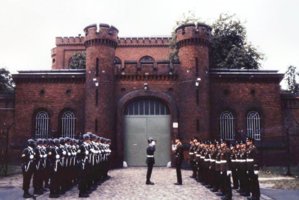The book club, which meets at a local cultural center and with whom I've been a member for six months, is reading The Physician by Noah Gordon this month. If you want to look at our list of books for the remainder of the year, I built a website at http://cbclub.yuku.com It's not brand new, the site, only as old as my enrollment. Not to my surprise, due to the age of most members, the site is little visited except to learn of an upcoming title.
The Physician is 608 pages and in order to be ready for discussion the third Monday of the month, I'm going to have to make the time to read, or, as I've done in the past, gain some help from a few dozen reviews and summaries. The book is hugely popular and is soon to become a major motion picture, I understand.
I managed to read nearly all of Barbara Tuchman's The Proud Tower two months ago and it contained the exact number of pages, 608, so there's a high probability I'll get through this one. I took a great many notes while reading Tuchman's book and was well prepared to lead the discussion, if need be. But it was recommended by a former history teacher who was there to lead and she was hard of hearing. To further take the wind out of my sails, the rest of the group barely completed a few pages of the book, while I gave it high marks and hoped for a lively discussion. NOT!
The Physician is a pretty good book so far, after reading less than ten chapters. If you visit the group's website, you can read the storyline. I still have the site set up for membership approvals only. Members wanted it that way to keep out strangers, but I don't see them using it much, so I should probably cancel the need for consent. Still, if you want to join the reading, and share your opinions and insights, I'll happily give you consent to post.
Has anyone read this book, the first in Gordon's trilogy? One of the reviews I read yesterday said the historical content is way off the mark, but, because the story is so magnetic, readers aren't curious enough to learn the true history, or they really don't care to understand the eleventh century.
The Physician is 608 pages and in order to be ready for discussion the third Monday of the month, I'm going to have to make the time to read, or, as I've done in the past, gain some help from a few dozen reviews and summaries. The book is hugely popular and is soon to become a major motion picture, I understand.
I managed to read nearly all of Barbara Tuchman's The Proud Tower two months ago and it contained the exact number of pages, 608, so there's a high probability I'll get through this one. I took a great many notes while reading Tuchman's book and was well prepared to lead the discussion, if need be. But it was recommended by a former history teacher who was there to lead and she was hard of hearing. To further take the wind out of my sails, the rest of the group barely completed a few pages of the book, while I gave it high marks and hoped for a lively discussion. NOT!
The Physician is a pretty good book so far, after reading less than ten chapters. If you visit the group's website, you can read the storyline. I still have the site set up for membership approvals only. Members wanted it that way to keep out strangers, but I don't see them using it much, so I should probably cancel the need for consent. Still, if you want to join the reading, and share your opinions and insights, I'll happily give you consent to post.
Has anyone read this book, the first in Gordon's trilogy? One of the reviews I read yesterday said the historical content is way off the mark, but, because the story is so magnetic, readers aren't curious enough to learn the true history, or they really don't care to understand the eleventh century.

 Member
Member
